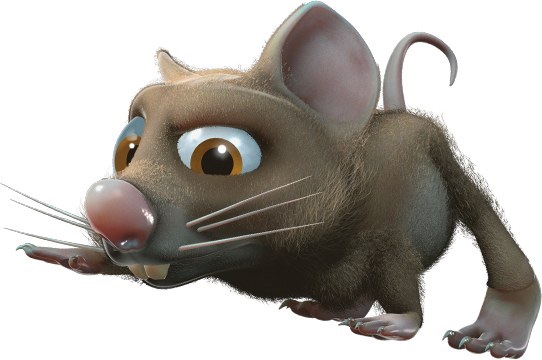Pigeon Facts
Pigeons are found all over the world. They mate year-round, with increased rates in spring and fall.

There are several varieties of pigeons. Wild pigeons can live up to 15 years, but last only about three to four in urban environments. These birds mostly eat seeds and grains, however they will also eat garbage, insects, and bread fed to them by people.
You’ll find these birds cooing and in environments that people frequent like parks or around buildings, as well as near bridges, grain elevators, and farm yards. They can also transmit bacteria responsible for causing lung infection, food poisoning, and other harmful viruses.
Pigeon Damage
If you have a pigeon nesting problem you’ll notice the bird itself just hanging around and looking for a meal. They make a distinct cooing noise and cause a loud ruckus when they take flight. Droppings may begin to accumulate near their nesting sites.
Pigeon Infestation
Droppings from these birds are not only unpleasant to look at, but they may also deteriorate the outsides of buildings, and even kill some plants. If pigeon are found where grain is stored, they’re probably feasting on it, and potentially contaminating it. When their droppings accumulate, a fungus develops that causes Histoplasmosis, a disease that affects the lungs. It may also lead to other diseases like cryptococcosis, which affects the brain. Pigeons can transmit diseases to both humans and animals. Like other birds, it is also possible for pigeons to cause plane crashes, as they may get sucked into engines, disabling the plane. It’s important to consider getting rid of pigeons at the first sign of the nuisance.
Types of Pigeons
Pigeon Identification
Despite different species of pigeon, most average around 11 inches in length. They have bluish grey bodies and small beaks. They’re most often found dwelling in cities where they nest on buildings, window ledges, and under bridges or cliffs.
Pigeons on the Roof & in the Chimney
These flying foragers love to nest on building ledges, in steeples, attics, lofts, bridges, or anywhere they can set up a crude nest. You’ll notice a shoddy pile of sticks, twigs, and grass if you’ve got pigeons around.
If you’ve got a friend who loves to feed the pigeons, you might want to ask them to stop. Pigeons aren’t very picky, so if you’re throwing bread around everyday, they’re probably expecting a free meal. If there are any spilled seeds or grains around bird feeders, make sure to clean them up for easier pigeon control. Also, try to get rid of any standing water they might want to take a bath in.
Frequently Asked Questions
Should I remove pigeon nests?
Since some species of bird are protected, it’s always smart to consult a professional before moving or removing any nests on your property. States have different laws on it, but for the most part, pigeons aren’t a protected species, so nests can be removed willingly. If there are eggs or young in the nest, it’s best to contact a professional to handle removing the nest properly to protect the bird and you, the homeowner.
What are the benefits of professional pigeon pest control?
While pigeons, unlike other bird species, aren’t protected by state laws, that doesn’t mean removing them from a property is any easier. Pigeons can transmit disease and can be hazardous to your health. Having an experienced pest control specialist take care of a pigeon infestation or issue is the best and safest plan of action.
If pigeons are becoming a problem in your neighborhood, home, or property, contact us. Our technicians can remove the wildlife nuisance and help you regain control of your property and sanity.


